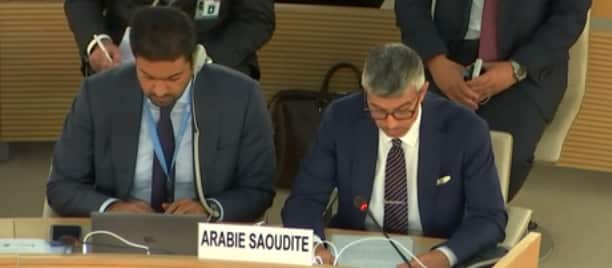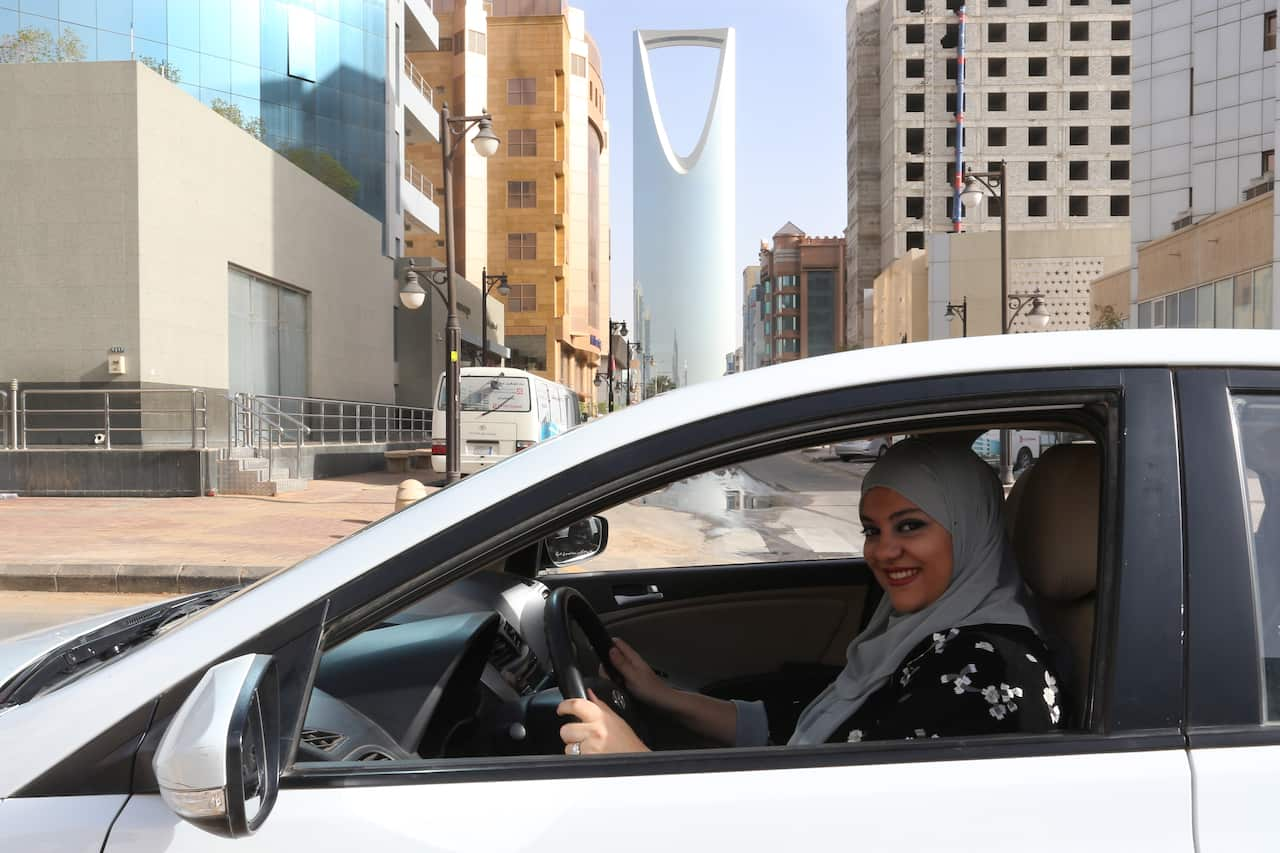Saudi Arabia has fired back at Australia, accusing the government of racism and even supporting anti-Islamic sentiment in the form of the accused Christchurch mosque shooter.
The rebuke came after Australia’s Ambassador to the UN Sally Mansfield delivered a joint statement on behalf of 25 countries, decrying the kingdom’s human rights record to the United Nations Human Rights Council in Geneva. But Saudi ambassador Abdulaziz Alwasil fired off a staunch defence of his Kingdom - singling out Australia as a nation where xenophobia and racism against Muslims had garnered government support.
But Saudi ambassador Abdulaziz Alwasil fired off a staunch defence of his Kingdom - singling out Australia as a nation where xenophobia and racism against Muslims had garnered government support.

Saudi Crown Prince Mohammed bin Salman during a visit to province of Tabuk, Saudi Arabia. Source: ABACA
“We see in some countries radicalism against Muslims, we see xenophobia, racism. And some governments sympathise with them, like Australia,” he told the UN Human Rights Council this week.
He cited the Australian background of the suspect beyond the Christchurch terror attacks on two mosques earlier this year.
"Here we refer to the massacre perpetrated by Brenton Tarrant – an Australian – which was based on hate speech," he said. In a statement a spokesperson for the Department of Foreign Affairs said the Australian government "rejects xenophobia and racism", when asked about the matter.
In a statement a spokesperson for the Department of Foreign Affairs said the Australian government "rejects xenophobia and racism", when asked about the matter.

Saudi ambassador Abdulaziz Alwasil speaks to the UN Human Rights Council in Geneva. Source: UN Web TV
"The Australian Government strongly supports the human rights of Muslims around the world, including Uighurs and Rohingya," the statement read.
"We are confident that we can engage in constructive dialogue with each other on human rights while maintaining and advancing many strategic, commercial and multilateral interests."
The rebuke was also reported in Saudi media, with the Arab News running the headline: “Saudi Arabia rejects interference in its internal policies” before laying out Mr Alwasil's defence - claiming the kingdom's recent reforms is in line with “Islamic pillars”.
Ms Mansfield's joint statement to the UN had expressed “deep concern” over human rights abuses in Saudi Arabia.
“We are concerned at reports of torture, arbitrary detention, enforced disappearances, unfair trials, and harassment of individuals engaged in promoting and defending human rights, their families and colleagues,” she said at the UN Human Rights Council this week.
“Human rights defenders, women’s rights activists, journalists and dissidents remain in detention, or under threat.” Mr Alwasil had labelled the joint statement misinformation for its attack on the Kingdom.
Mr Alwasil had labelled the joint statement misinformation for its attack on the Kingdom.

Dina Yousef, 30, after a royal decree lifted the ban on women driving a car in Saudi Arabia, in Riyadh, Saudi Arabia. Source: EPA
“We have listened with great surprise to the statement of Australia on behalf of a group of states,“ he said.
“In it, there are many mistakes and misleading information against my country.”
Saudi Arabia is a member of the 47-member UN Human Rights Council. But despite progressive reforms, widespread concerns around the kingdom's spotty human rights record remain. Ms Mansfield spoke out in support of Saudi Arabia's recent liberalisation in her speech citing promises to lift restrictions on the rights of women to travel.
Ms Mansfield spoke out in support of Saudi Arabia's recent liberalisation in her speech citing promises to lift restrictions on the rights of women to travel.

Protestors hold candles and pictures of Jamal Khashoggi during a demonstration in front of the Consulate of Saudi Arabia in Istanbul, Turkey. Source: EPA
But she said there was still need for greater action to end systemic abuses.
“We call for an end to impunity for torture and extrajudicial killings; and we appeal to Saudi Arabia to end its use of the death penalty,” she said. The joint statement honed in on the murder of Washington Post journalist Jamaal Khashoggi at the Saudi consulate in Istanbul in October last year.
The joint statement honed in on the murder of Washington Post journalist Jamaal Khashoggi at the Saudi consulate in Istanbul in October last year.

Saudi journalist Jamal Khashoggi speaks during a press conference before his murder. Source: AP
Riyadh initially said it had no knowledge of the murder, but later blamed it on rogue agents.
Saudi’s Crown Prince Mohammed Bin Salman has rejected knowing anything about the plot.
“It is important that truth be established and accountability achieved,” Ms Mansfield said in her speech.
Conservatism remains prominent in the Kingdom despite reforms allowing women to drive and a more liberal approach to music and entertainment.
In Saudi Arabia, public places are often segregated and women are required to wear Abayas – or loose robes to cover their bodies in public.
Alongside his rebuke of Australia, Saudi Arabia’s ambassador raised serious concerns over the treatment of Muslims throughout the world.
“We express concern vis-à-vis the horrific violations of human rights, of minorities, migrants, and Muslims, they face racist and extremist policies,” Mr Alwasil said.
Countries supporting the joint statement against the Kingdom's human rights record included Australia, Canada, New Zealand, the United Kingdom and 20 others from across Europe and South America.









